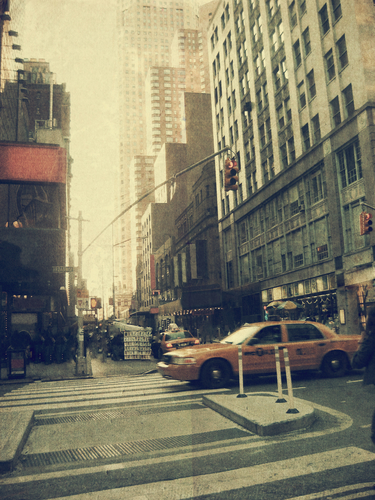Abstract
Crafting a
Catcher in the Rye essay on
J.D. Salinger’s famed and beloved novel is an exercise both enjoyable and challenging. The book has done what so few pieces of literature have attempted to do and failed—it has remained relevant to youths everywhere, over
half a century after its release. As a result of its celebrated quality, writing an essay on the novel can be daunting. This is because so many of themes and symbols have been picked apart and devoured repeatedly by scholars and critics. However, the better you understand the novel and the major concepts that shape it, the more primed you will be to write the most original and thoughtful essay you are capable of creating.

Related Topics
How does the loss of Allie motivate many of Holden’s actions, thoughts and feelings?
Authenticity matters tremendously to Holden. Is he authentic? Explain.
Jane is a pervasive force in the novel and impacts Holden tremendously. Discuss.
Explain why the novel had to end with Holden never calling Jane.
Explain why the novel should not have ended without Holden phoning Jane.
Discuss Holden’s relationship to sex as hinted at in the novel.
Holden’s parents are an invisible presence in the novel. Discuss why Holden avoids them and how they impact him.
Holden is very isolated by the world around him. How much of that is real and how much of it is self-imposed? Discuss.
The novel abounds with objects—the red hunting hat, the skate key, checkers, Allie’s mitt, Phoebe’s record. Pick one object that Holden mentions or encounters and discuss the symbolism it suggests.
Money and class are a strong influence on Holden and in the novel, often influencing some of his actions. Discuss.
While the Catcher in the Rye has some dated elements to it, the core of the novel is still unquestionably relevant today. Agree or disagree. What is “the core of the novel”?
Holden’s use of sarcasm is often hilarious, though he often uses it as a strategic tool: sometimes to mollify his reality, other times to dismiss things he doesn’t understand, other times as a defense mechanism, etc. Discuss three instances where he uses sarcasm as a means of self-protection.
Summary
Holden Caufield, a teenager, opens his story from an institution of some sort (a sanatorium or some other mental health facility). The novel is a recollection of his adventures that had occurred before the last Christmas. At the start of this recollection, Holden explains to the reader that he was expelled from his ritzy private school, Pencey Prep, for failing out of all his courses. On his way out, he runs into Ward Stradlater, his roommate. Stradlater informs Holden that he’s going on a date with an old friend of his, Jane Gallagher. Stradlater also asks Holden to write an essay for him, and Holden complies. When Stradlater returns from his date he says the essay that Holden wrote (about his deceased brother Allie’s baseball mitt) isn’t acceptable. He also won’t tell Holden what exactly went on during his date with Jane—just that they hung out in his borrowed car for several hours. Holden tries to punch him and they scuffle. Holden then bums around the dorm and the loneliness of his situation overwhelms him and he decides to leave for New York a few days early.
However, Holden has to go find a hotel to stay in when he finally arrives in New York, as he can’t go home. Holden claims that his parents do not yet know that he has been expelled, which might be true. Holden has also explained to the reader that “I'm the most terrific liar you ever saw in your life” (22). So it’s also possible that the school called his parents, and they already know about him being expelled. Thus, Holden just wants to avoid going home a bit longer. The reader doesn’t know for sure. Holden then gets room at the
Edmont Hotel, and inevitably starts to feel isolated, so he goes down to the Lavender Room, the nightclub in the hotel. He has some awkward interactions there and then hits another nightclub, but then heads out after he sees a woman his older brother D.B., used to date. Upon returning to the hotel, Holden decides to get an...
She finds that weird, so she demands to be paid. They haggle over the money with Sunny arguing that her fee is actually double what her pimp quoted him. Later her pimp forces his way in, takes what they believe they are owed. The pimp punches him, after Holden insults him, calling him a “dirty moron” (135).
The next day after giving money to some nuns he meets at breakfast, Holden spends the day with Sally Hayes, a girl he used to date. Sally Hayes is a bit pretentious but very pretty and they catch a movie and go skating. At one point when they’re taking a break from skating, Holden suggests they run away together and live in a cabin in the woods and she sort of dismisses the idea, so he tells her “You give me a royal pain in the ass, if you want to know the truth” (173). This makes her cry and he has to apologize for it. She then refuses to let him take her home. He thinks about phoning Jane again but instead meets up with Carl Luce, a kid he knew at Whooton, which is the school he was presumably thrown out of before Pencey. They just have one drink together at the
Wicker Bar as Carl seems annoyed by everything that comes out of Holden’s mouth, even the more neutral things. Holden begs Carl to stay for another drink, but he leaves, saying that he is late. Holden continues to drink alone.
Holden then wanders around
Central Park until the freezing temperature coaxes him back to his parents’ apartment where his younger sister Phoebe is, age 10. Phoebe quickly figures out that he had been kicked out of school again and has a pointed remark for him: she asserts that he doesn’t like anything and then presses him to name one thing that he likes. She then presses him to name something he’d like to be. This is when Holden shares with her his fantasy, inspired by the
Robert Burns poem, of being the guy that catches kids who are playing in a field of rye from falling off the edge of the cliff. This fantasy is the inspiration for the novel’s title. Their parents arrive home and Holden sneaks off again.
Holden has already made plans to stay with his old English teacher, Mr. Antolini. Holden has known Mr. Antolini a long time; he was his teacher at Elkton Hills, another private school Holden attended. Antolini is someone who has married a wealthy woman who is older than he, largely in a marriage of presumed convenience. Holden and Antolini smoke and drink and his teacher gives him some good life advice about developing his native talents and finding out more about how his mind works. However, Holden wakes up in the middle of the night to find his teacher crouched on the floor beside his couch, stroking his head. Holden freaks out when that happens, thinking his former teacher is making a pass at him. He flees, passing the rest of the night at
Grand Central Station. In the morning, he wonders if he made the correct assessment about Antolini’s intentions.
The next day, he heads straight to Phoebe’s school and leaves a note for her, explaining that he’s going to hitchhike out west. He instructs her to meet him at the museum so he can give her back the money she lent him. Heartbreakingly, she comes to the museum with a suitcase and demands to runaway with him. He can’t agree to that, so instead they go to the park and she rides the carousel. It’s starts to pour and all the other parents and siblings watching their little ones go under the awning. However Holden just sits there and gets soaked, minimally protected by his hunting hat. That’s when the recollected adventure ends and Holden tells us that he’s still under care at an institution of some sort. We can assume it’s a mental health facility as he alludes to being psychoanalyzed. He also tells us he will be starting a new school in the fall. The book ends with Holden’s advice to the reader about remaining emotionally unattached to others.

Analysis
The novel is rich in motifs and symbolism and this is part of the novel’s success for so many decades. Ultimately The Catcher in the Rye is a novel about loss and grief: we don’t learn until chapter five that Holden’s little brother Allie died of leukemia, but the…





